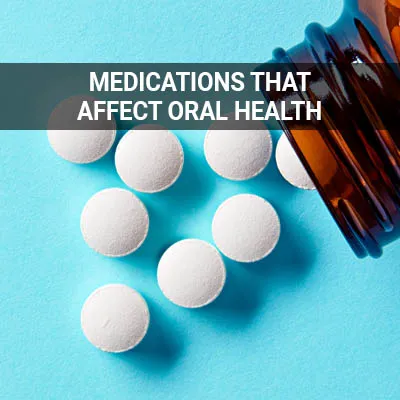Diseases Linked to Dental Health Phoenix, AZ
Complete health has revolutionized the way dentists and physicians care for their patients, addressing the link between oral and systemic health. The mouth is the leading entryway for bacteria to make their way through the body systems' various tracts. Complete health dentists view their patients as not just a mouth but a whole body, working to achieve overall wellness.
Many oral and systemic diseases coincide and simultaneously affect one another. Understanding the oral-systemic link and preventative treatments can greatly enhance your health and well-being. Complete health dentistry is available at Dental 32 in Phoenix and the surrounding area. Our staff can help you better understand the oral-systemic health connection. Call us at (602) 466-9906 to schedule a consultation appointment today.
Habitual vs. Genetic Reasons for Oral Conditions
A number of oral health conditions stem from habit and behavior. The leading causes of many oral concerns are smoking, excessive alcohol consumption, poor nutrition, and inadequate brushing, flossing, and rinsing. Genetics also plays a role in oral health conditions, ranging from hereditary traits to behaviors during pregnancy.
How to Prevent These Issues
Minor dental concerns, such as cavities and caries, often stem from genes or women who had untreated cavities or caries during pregnancy. However, severe oral conditions, such as gum disease or oral cancer, are often combinations of genes and behavior and worsen through improper hygienic habits. It is possible to diagnose the majority of oral conditions at a young age through preventative treatments that combat disease and decay at the root. The most crucial step in preventing oral and systemic health concerns is a good oral hygiene routine.
Healthy Living and Wellness Plans
A part of living a healthy, balanced life is diet, nutrition, exercise, and hygiene. A good oral hygiene routine entails proper brushing twice a day, flossing and rinsing daily, consistent six-month dental checkups and cleanings, replacing toothbrushes every three months, and avoiding sugary foods and beverages.
A wellness plan is a program designed to improve health and fitness, usually offered by employers and insurance companies. A wellness plan encompasses all health concerns (mental, physical, and emotional) for full-body wellness. They incorporate oral health, general health, and mental health concerns into a systemic chain that combats conditions simultaneously.
“A part of living a healthy, balanced life is diet, nutrition, exercise, and hygiene.”
Heart Conditions
Heart Disease
Poor oral health increases the risk of bacteria and infection entering the bloodstream, particularly affecting patients with artificial heart valves. The Mayo Clinic found that "heart disease, clogged arteries, and stroke might be linked to the inflammation and infections that oral bacteria can cause." Periodontal disease, a severe form of gum disease, is associated with an increased risk of developing a heart condition.
Endocarditis
Endocarditis is an infection in the inner lining of the heart chambers caused by bacteria in the bloodstream. Bacteria, fungi, infections, and viruses attach to certain parts of the heart and clog the heart chambers or valves (endocardium). Going without treatment can lead to various health complications and fatal risks.
“Gum disease, and its severe form periodontal disease, is associated with an increased risk of developing a heart condition.”
The Gut and Immune Systems
Gut Health
The gastrointestinal system is primarily affected by oral health despite having a greater bacterial density than the oral cavity. The Journal of Oral Microbiology study concluded that "severe diseases and genetic susceptibility of the host may promote ectopic colonization of oral bacteria." The intestinal tract is a leading pathway for microbes and bacteria to enter the gut and many other body systems. Good oral hygiene, periodontal therapy, prebiotics, and probiotics may reduce oral bacteria in gastrointestinal disorders.
Immunodeficiencies
Immunodeficiencies refer to over three-hundred diseases that affect the body’s defense or immune systems, such as HIV/AIDS and Down syndrome. Many of these diseases are primarily genetic, but malnutrition and poor oral hygiene play a major role. The National Institutes of Health found that "bacterial plaque related periodontal diseases seem particularly sensitive to primary deficiencies in the innate immune system." Since an immunodeficient patient’s body defenses are weak, the immune system has difficulty fighting infections and bacteria that enter through the mouth.
“Many of these diseases are primarily genetic, but malnutrition and poor oral hygiene play a major role.”
Check out what others are saying about our dental services on Yelp: Diseases Linked to Dental Health in Phoenix, AZ
Effects During Pregnancy
Premature Birth
As bacteria enter the body through the oral cavity, various tracts lead to the womb and affect the fetus. According to the Matern Child Health Journal, "Untreated dental disease can lead to infection and inflammation, which have been implicated as significant contributors to preterm birth." In essence, the fetus does attain an inflammatory response to maternal oral infection.
Low Birth Weight
Women who have periodontal disease have also been linked to higher rates of premature birth and low birth weight. Good oral hygiene and care before and during pregnancy have shown a significantly lower number of low birth weight babies. In an article on preventative medicine, researchers found that pregnant women who brushed their teeth thoroughly thirteen or more times a week had normal birth weight outcomes and preterm birth (37 completed weeks of gestation).
“Good oral hygiene and care before and during pregnancy have shown a significantly lower number of low birth weight babies.”
Questions Answered on This Page
Q. Are oral conditions primarily habitual or genetic?
Q. How does poor oral health affect the heart?
Q. How does oral health affect the gut and immune system?
People Also Ask
Q. Are oral conditions genetic or a result of environmental factors?
Treatments for Those Suffering
Prevention
A basic understanding of the oral-systemic connection is integral in addressing health conditions and their effects on the body. A well-balanced, healthy lifestyle consists of a diet low in sugar and high in fruits and vegetables, cutting out all forms of tobacco, reducing alcohol intake, and brushing teeth twice daily with an optimal amount of fluoride (1000 to 1500 ppm). Fluoride is a naturally-occurring mineral that protects the tooth's enamel and is crucial for maintaining good oral hygiene.
Treatments
Minor treatments, such as cavities and caries, require minimally-invasive treatments that remove the infection or decay and are covered with a filling, crown, or sealant. More invasive procedures, such as flap surgery, bone grafting, extractions, and implants, are performed for gum disease, oral cancers, flap disease, or other severe conditions. The earlier a condition is diagnosed, the more effective and successful the treatment is.
Frequently Asked Questions About Diseases Linked to Dental Health
Q. What are the early indicators of dental problems?
A. Many dental problems are first indicated by a sudden feeling of discomfort, pain, or bleeding. Patients also complain from soreness, inflammation, or swelling when a particular area or tooth hurts. They may also experience jaw or gum pain, dry mouth, bad breath, and increased sensitivity to hot and cold.
Q. Are flossing and rinsing an essential part of oral care?
A. Contrary to popular belief, flossing is as important as brushing your teeth. Food particles remain between the teeth and gum line and are often left behind after brushing. These particles build up plaque and cause bacteria to collect in the gums, causing infection. Rinsing with a non-alcohol mouthwash is important to clear all remaining bacteria.
Q. If I had dental problems pre-pregnancy and had treatment, are there still risks for my baby?
A. Untreated dental problems during pregnancy are of primary concern as bacteria travel through the bloodstream and into the womb. However, treated dental problems and proper hygiene maintenance throughout pregnancy have shown positive outcomes in the baby’s health. There are genetic factors that can play into the fetus’ oral health without complications or dental issues during pregnancy.
Q. How is smoking a factor in the oral-systemic connection?
A. Tobacco products affect all body systems, including the oral cavity. Smoking not only impacts the mouth because of its numerous chemicals but also allows bacteria to flow through many other body systems. Smoking also limits saliva flow, causing bacteria to stick to the teeth and gums, building plaque and infections.
Q. What diseases contribute to bad oral health?
A. Diabetes is a common disease that affects oral health as diabetes slows down the healing process and may make treatment more difficult. Heart disease is another contributing factor as the immune system becomes weaker. Immunodeficiencies, such as HIV or down syndrome, also affect oral health as the body’s defenses are less alert and do not fight off oral bacteria.
Quality Dental Services Can Transform Your Smile
By visiting us as soon as possible, our team can help get you the professional treatment you need. Instead of waiting around and allowing the symptoms to get worse, we can provide you with treatment options.
Dental Terminology
Learn More Today
If you are interested in better understanding complete health dentistry, call us at 602-466-9906 to set up an appointment.
Helpful Related Links
- American Dental Association (ADA). Glossary of Dental Clinical Terms. 2022
About our business, license, and website security
- Dental 32 was established in 2019.
- We accept the following payment methods: American Express, Cash, Check, Discover, MasterCard, and Visa
- We serve patients from the following counties: Maricopa County
- We serve patients from the following cities: Alhambra, North Mountain Village, Encanto Village, Glendale, and Camelback East Village
- AZ (License #D010962). View License Information and Specifics
- National Provider Identifier Database (1972986263). View NPI Registry Information
- Norton Safe Web. View Details
- Trend Micro Site Safety Center. View Details










